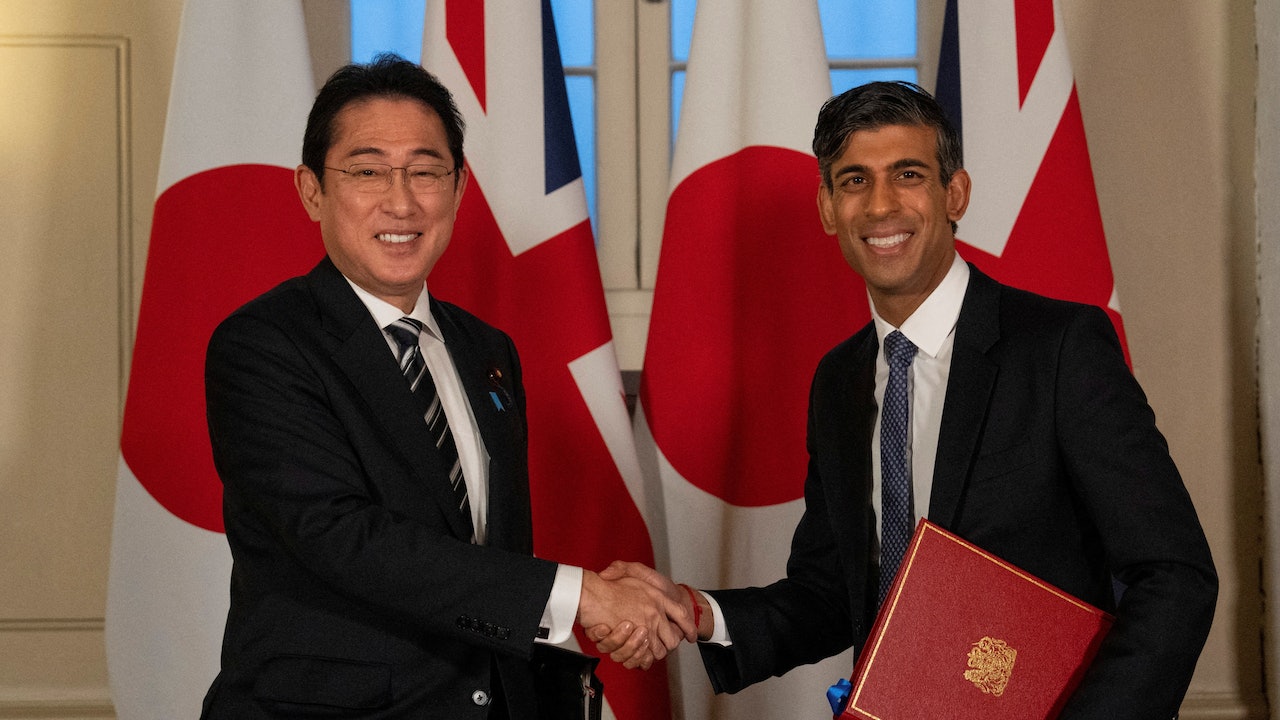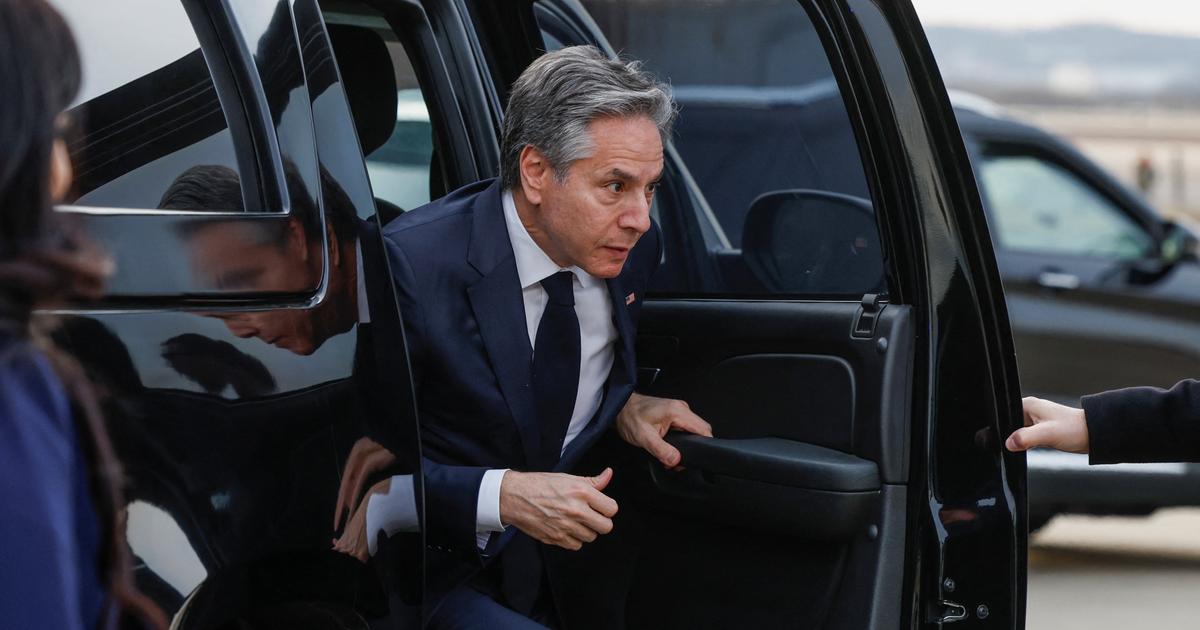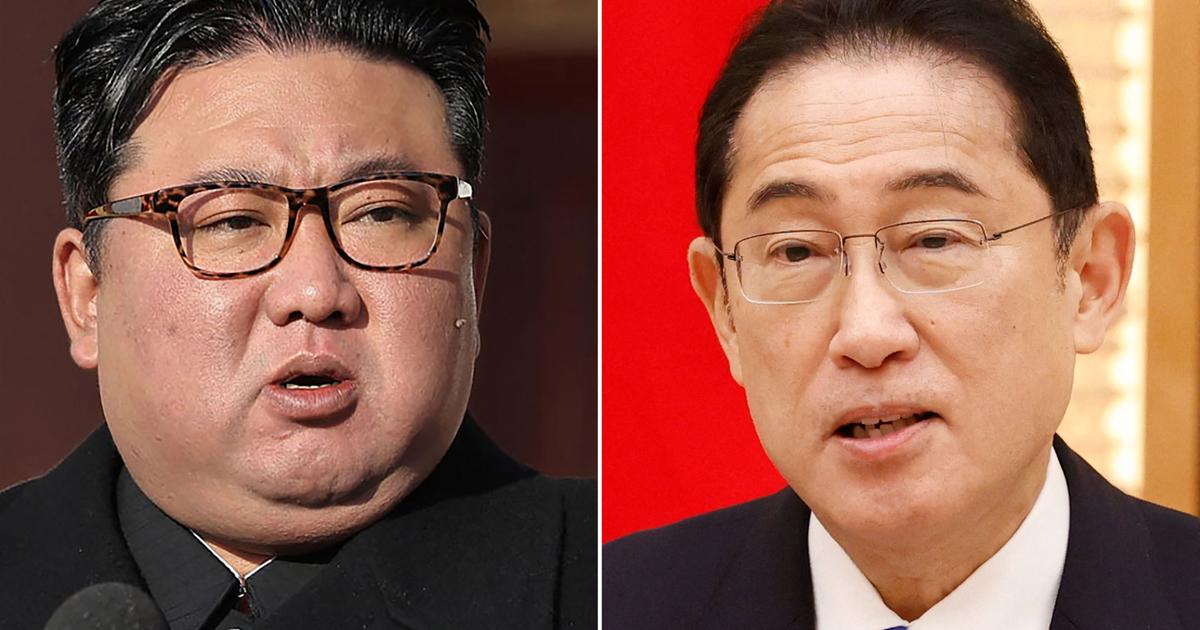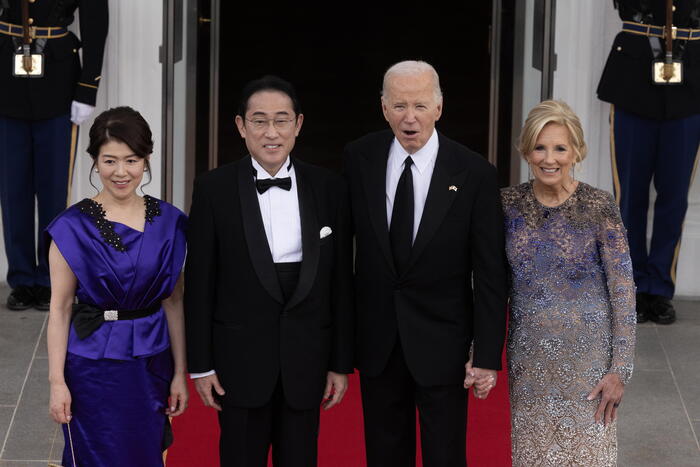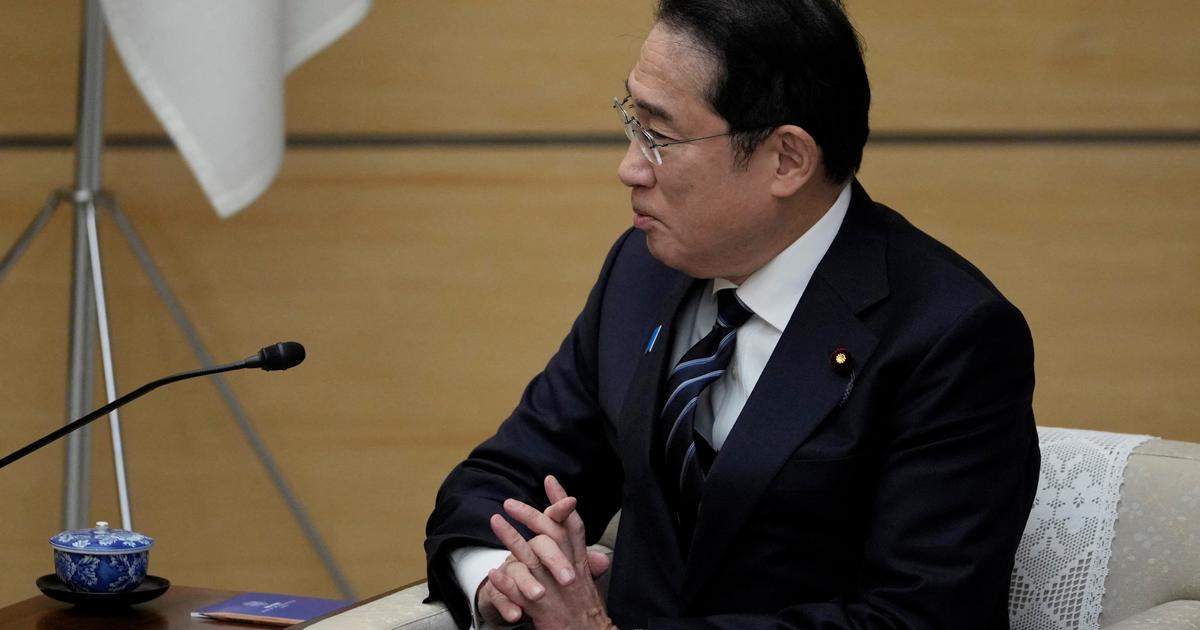Japan will be the host of the G7 summit in May this year. Last year’s host, German Chancellor Olaf Scholz, has already visited Japan since taking office. The other 5 countries of the G7.
From this perspective, Kishida's visit can be regarded as a routine for the host of the G7. However, from the perspective that Japan released three documents on national defense last year, pointing out the way forward for Japan's military expansion, this visit is of great significance.
When this article was published, Kishida had completed his trip to France, Italy, and the United Kingdom, and then went to North America to visit Canada first. He will arrive in Washington on the 13th to meet with US President Joe Biden.
The results of the three European trips
In France, Kishida and French President Emmanuel Macron reached a consensus on strengthening bilateral cooperation in the Indo-Pacific region, and will hold a "2+2" meeting between the foreign ministers and defense ministers of the two countries in the first half of this year.
France is the only country in the European Union that has military projection capabilities in Asia, Africa and the Americas. It has always claimed to be a Pacific country based on its territories such as New Caledonia in the South Pacific.
In February 2021, a French frigate had berthed in Japan. In May of the same year, France also conducted military exercises in Japan with the United States and Japan for the first time.
After the submarine cooperation between France and Australia is replaced by the "Australia, Britain and the United States" (AUKUS) in 2021, France is looking for another military foothold in the Indo-Pacific region. It has continuously strengthened military cooperation with India before, and Japan will be another Obvious target.
Before Shore Japan's visit to France, Japan also deliberately set up a consular office in New Caledonia, which has just experienced its third independence referendum, showing its support for French sovereignty.
Macron and Kishida visited Notre Dame Cathedral, which is being rebuilt after being destroyed by a fire in 2019.
(Reuters)
In Italy, after Kishida met with Prime Minister Giorgia Meloni, the two sides decided to upgrade their relationship to the level of "strategic partnership" and strengthen cooperation in diplomacy, investment, industry and other levels.
Italy joined China's Belt and Road Initiative in 2019, but the far-right politician Meloni, who came to power in October last year, took a tougher stance on China. He once said that joining the Belt and Road Initiative was a major mistake, and he also believed that China should tighten strategic industries. control.
In December last year, Japan, Italy and the United Kingdom decided to jointly develop a sixth-generation fighter jet beyond the F-35, hoping to produce results in 2035.
Although the effectiveness of this long-term cooperation has yet to be verified, the fighter jet cooperation of the three countries will help promote the integration of military industries that are interdependent among the three parties.
In the UK, Kishida signed the Japan-UK Mutual Access Agreement with Prime Minister Rishi Sunak, allowing the two sides to deploy armed forces on each other's territory, making the UK the first European country to sign a similar agreement with Japan.
Previously, Japan had reached a mutual access agreement with Australia.
Previously, in September 2021, the new British aircraft carrier HMS Queen Elizabeth will visit the Indo-Pacific region on its maiden voyage, visit Japan, and conduct its first drill with the Japanese Self-Defense Forces.
Since then, two British patrol ships have also been stationed at the US Naval Base in Yokosuka.
On January 10, Italian Prime Minister Meloni waited for visiting Fumio Kishida at the prime minister's residence.
(Reuters)
Judging from the results of the visits to France, Italy, and the UK, national defense is the focus of Kishida's visit this time.
Deployment of "Enemy Attack"
In December last year, the Japanese government announced three national defense documents, the "National Security Strategy", the "National Defense Strategy" and the "Defense Force Preparedness Plan". Increase defense expenditure by 43 trillion yen annually, with a view to reaching the NATO standard level of defense expenditure accounting for 2% of GDP by 2027.
Among them, what received the most attention was Kishida's inclusion of Japan's need to develop military "counterattack capabilities" into its national defense policy.
Since World War II, Japan has generally adopted a "defense-only" strategy, that is, if Japan is attacked by missiles from other countries, it can only withstand the attack or shoot down the missiles, and will not carry out so-called "attacks on enemy land" to actively attack other countries' missiles Missile launch site.
Although "enemy attack" has been discussed in Japan for decades, it has not been adopted as a policy, and its main target is North Korea.
Now that "counterattack capability" is written into the national defense policy, it can be seen that Japan is reversing the historical defense thinking of using itself as a shield and using the United States as a spear.
Before the meeting between Kishida and Biden, Japan and the United States held a "2+2" meeting between foreign ministers and defense ministers in Washington on the 11th. Japan agreed to play a "new role" in defense, and the two sides agreed to cooperate in "effectively developing Japan's counterattack capabilities".
From left to right: Japanese Defense Minister Yasuichi Hamada, Japanese Foreign Minister Hayashi Yoshimasa, U.S. Secretary of State Antony Blinken, and U.S. Secretary of Defense Lloyd Austin.
(Reuters)
In the 2023 defense budget announced by Japan in December last year, more than 2 billion U.S. dollars were specially set aside to purchase Tomahawk cruise missiles (Tomahawk) with a range of 2,500 kilometers from the United States to develop Japan's "enemy ground attack" strategy. ability.
Currently, the UK is the only overseas buyer of these weapons.
It can be expected that the meeting between Kishida and Biden will also focus on security issues.
"Overlooking the Globe Diplomacy"
Judging from the bilateral military cooperation between Kishida and France, Italy, Britain and other countries, Japan's military expansion policy will not take the United States as the "only option" as in the past, but will adopt what the late former Prime Minister Shinzo Abe called "overlooking Globe diplomacy” to build multinational relations outside the Japan-US alliance, even the EU countries that are far away on the other side of the world and have different interests in China.
This approach is actually to allow Japan to play an active and pivotal role in defense policy, just as Japan has in recent years in regional trade policy.
Taking advantage of Russia's invasion of Ukraine last year, Japan, which completely sided with Europe and the United States, will preside over the G7 summit this year. The general attitude towards the Russia-Ukraine issue) is brought into the wrestling in Asia.
In Japan, although Kishida's popularity is very low, his national defense policy is the mainstream of Japanese public opinion.
In November last year, a poll conducted by the Yomiuri Shimbun showed that 81% of Japanese respondents believed that China poses a military threat to Japan, and 68% supported Japan’s strengthening of its national defense capabilities. 44%.
These three items of public opinion are actually reflected in Kishida's military expansion policy at this moment.
It can be said that Japan's military expansion and the pursuit of relative independence in defense capabilities are the "spirit of the times" in Japan at the moment, and the path of pacifism is gone forever in the foreseeable future.
U.S. and Japanese Foreign Ministers and Defense Ministers "2+2" Talks Agree Security Treaty Applicable to Space Fumio Kishida Will Meet with Biden British Media: Or Discuss Control of Semiconductor Exports to China United Kingdom: Fumio Kishida and Xin Weicheng will sign the "Mutual Access Agreement" to allow British troops stationed in Japan Kishida to visit France and meet with Macron The two countries agree to strengthen cooperation in security affairs Fumio Kishida visits Italy and meets Meloni

